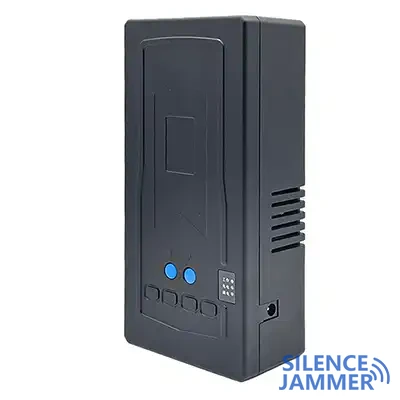In the age of digitalization and the spread of wireless networks, WiFi signal jammers (or WiFi jammers) have become devices that some people are concerned about. The main function of this device is to prevent network abuse or protect privacy by blocking WiFi network communications by emitting strong signals in the same frequency band as WiFi devices. However, as concerns about its potential effects have increased, people have begun to worry about whether WiFi signal jammers can have negative health effects. This article will explore this issue and analyze how WiFi signal jammers work and their possible health effects.

Electromagnetic Radiation and Health
WiFi signal jammers, like WiFi devices, emit non-ionizing electromagnetic radiation. Non-ionizing radiation does not have enough energy to break molecular bonds or ionize atoms, unlike ionizing radiation such as X-rays or radioactive materials. Therefore, non-ionizing radiation is generally considered to have less direct health hazards.
However, whether long-term exposure to high-intensity non-ionizing radiation will have an impact on health is still a controversial topic. Research has mainly focused on the following aspects:
Thermal effects: High-intensity electromagnetic radiation can produce thermal effects, causing tissue temperature to increase. WiFi signal jammers are usually low-power and not enough to produce significant thermal effects. However, if the device is high-power and close to the human body, it may theoretically cause local tissue heating.
Non-thermal effects: Some studies have shown that long-term exposure to low-intensity non-ionizing radiation may cause non-specific symptoms such as headaches, fatigue, and sleep disturbances, but these findings have not been unanimously recognized. The current scientific consensus is that the radiation levels of WiFi devices and jammers in ordinary environments are not enough to cause significant health effects.
Potential health risks of WiFi jammers
- High-power devices: Some high-power jammers may generate strong electromagnetic radiation. If these devices are used close to the human body for a long time, they may cause local tissue heating, although this is rare.
- Long-term exposure: Although the radiation power of WiFi jammers is low, long-term exposure to their signals, especially in confined spaces, may increase health risks. Therefore, it is recommended to maintain an appropriate distance when using these devices and avoid long-term exposure.
- Multi-device environment: If there are multiple WiFi jammers operating simultaneously in an area, the cumulative effect of electromagnetic radiation may increase, thereby increasing potential health risks.
Although most WiFi jammers are low-power, their use may still pose some potential health risks, especially in the following situations:

The use of WiFi signal jammers may have certain negative health effects, especially in the case of high-power devices and prolonged exposure. Although the non-ionizing radiation it emits is generally considered to be less directly harmful to health, the potential risk still exists.


